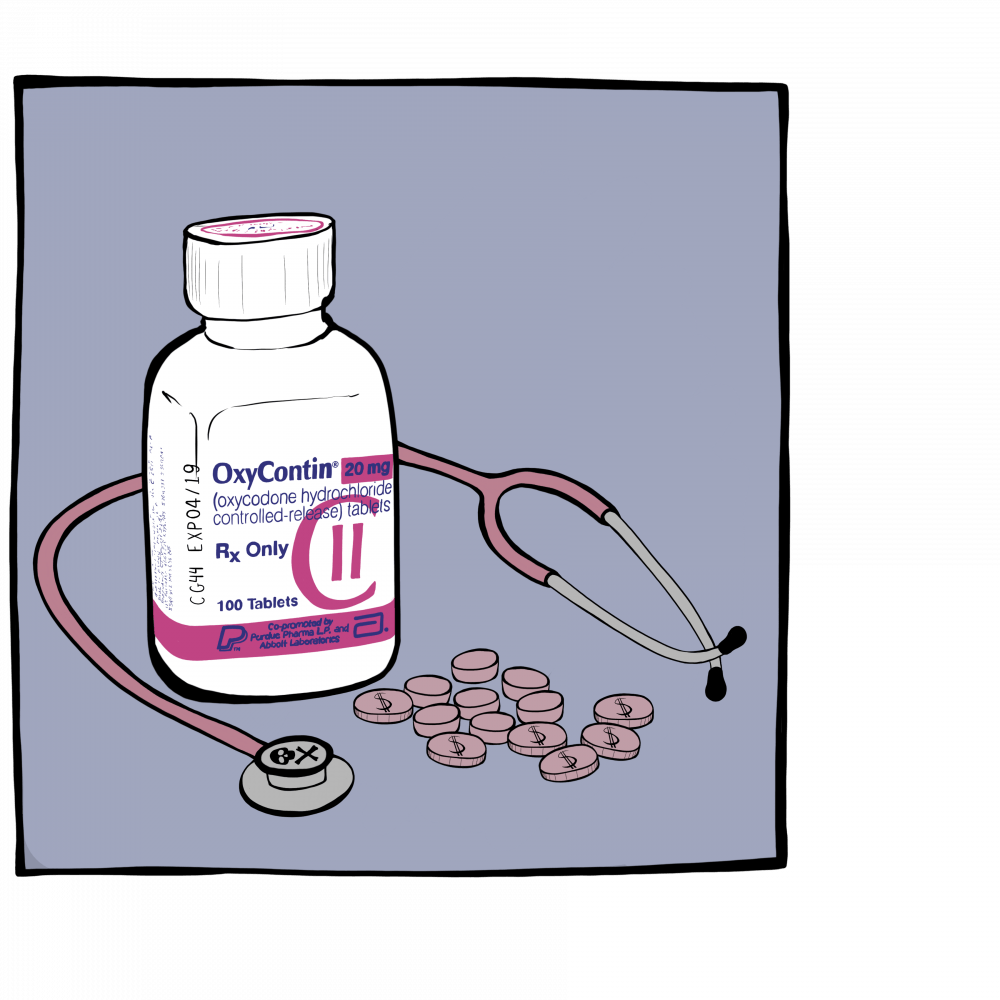The Sackler family continues to face lawsuits over its involvement in Purdue Pharma, a producer of the opioid OxyContin, that allege they are responsible for thousands of deaths from overdose and addiction. The Sackler family is a major donor to the University and other educational institutions.
Last week, the state of New York filed a lawsuit against members of the family and drug distributors, joining lawsuits from the states of Massachusetts, Connecticut, Rhode Island, and Utah, as well as a conglomeration of roughly 1,600 cases presided over by a judge in Cleveland.
Previously, a lawsuit filed by the state of Oklahoma was settled for $270 million, avoiding a planned televised trial and jury decision. These court filings follow a 2007 plea deal in which the company admitted to misrepresenting OxyContin and paid over $60 million in civil and criminal charges.
The Sacklers are known for substantial contributions to educational and cultural institutions, including funding for the Arthur M. Sackler Gallery at the University Art Museum and the University Raymond and Beverly Sackler Lectures in Astrophysics. Their gifts have also resulted in the construction of a library at Oxford University, a science institute at Columbia University, and wings at the Metropolitan Museum of Art in New York and the Louvre Museum in Paris, among others.
Recently, other universities and institutions reconsidered their relationship with the Sackler family. The Tate museums in London and the Solomon R. Guggenheim Museum in New York both announced that they would no longer accept donations from the Sacklers. Tufts University, which has a graduate school named for the Sacklers, hired a prosecutor to evaluate their ties.
Despite increased interest from students and the community in renaming buildings and locations on campus, the University’s stance has been neutral on the issue of the Sackler Gallery. According an email to the ‘Prince’ from University spokesperson Ben Chang, the University does “not have anything to add” to their previous statement.
Earlier this year, the University did not take a stance on the Sackler family’s actions.
“The naming policy does not pass judgment on the lives of the donors; it simply expresses our gratitude for the donation,” Chang wrote in a previous statement to ‘Prince.’
“Requests to name a program, position, or space must comply with the University’s policy on naming and be approved by the Board of Trustees,” he continued.
Documents uncovered from both the New York and Massachusetts filings allege that the Sackler family had been involved in misleading advertising, attempting to market the drug even as the number of deaths from opioid addiction was rapidly increasing. The documents also suggest that Purdue Pharma, which includes several members of the Sackler family on its board, directed efforts to cover up the addictive potential of OxyContin and ignored growing evidence that it was being abused.
According to reporting done by Esquire and The New Yorker in 2017, members of the family encouraged doctors to prescribe the drug even for moderate pain, telling physicians that OxyContin had delayed absorption into the bloodstream, and thus, less addictive capacity.
The crisis of opioid addiction and abuse has only grown in the decades since Purdue Pharma became incorporated in 1991. From 1999 to 2017, nearly 400,000 people have died from an opioid overdose. According to the CDC, 130 Americans die from opioid overdose daily.

The recent filings also expose a plan to sell treatment for opioid addiction, termed Project Tango. According to the New York Times, charts and diagrams showed that Purdue Pharma was aiming to be an “end-to-end pain provider,” making money from selling both the drug and its treatment.
In a statement issued on April 2, the Sackler family denied these allegations, claiming that the Massachusetts lawsuit had falsely represented their role in the marketing of OxyContin. The Sacklers accuse Massachusetts attorney general Maura Healey of “cherry picking” inaccurate and misleading statements.









